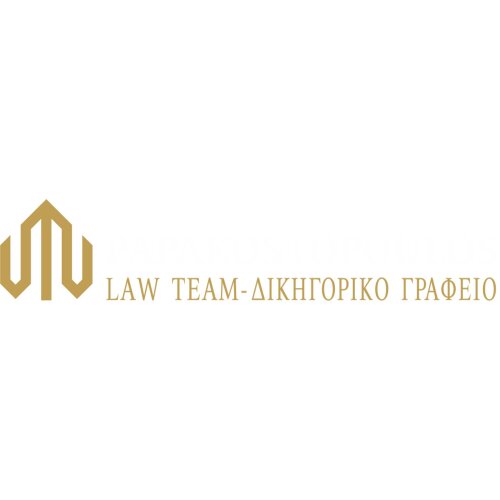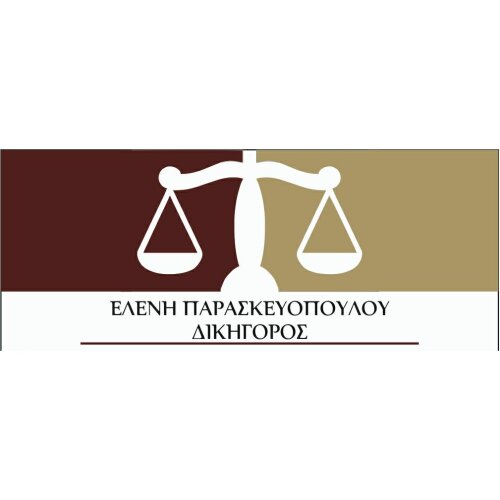Best Permanent Residency Lawyers in Pátrai
Share your needs with us, get contacted by law firms.
Free. Takes 2 min.
List of the best lawyers in Pátrai, Greece
About Permanent Residency Law in Pátrai, Greece
In Pátrai, Greece, permanent residency is a status that allows non-Greek nationals to live and work indefinitely within the borders of the country. Typically, this can be obtained after five years of living legally in Greece, but the regulations are subject to change and dependent on several factors. These may include the individual's financial status, employment, marriage to a Greek citizen, and nationality. Permanent residency law is complex and evolves over time, making it essential to stay up-to-date and consider professional legal advice for the process.
Why You May Need a Lawyer
Acquiring permanent residency in Pátrai, or any part of Greece, requires interacting with complex administrative and legal requirements. You may need a lawyer to guide you in understanding these laws and rules. Legal advice is beneficial in situations such as appeal against a rejected application, understanding rights and obligations as a permanent resident, issues with documentation and paperwork, and clarifying changes in Greek immigration law.
Local Laws Overview
The Greek Immigration Code 4251/2014 principally governs the laws relevant to Permanent Residency. Some key aspects include demonstrating sufficient financial resources, possession of health insurance that covers any risks in Greece, and confirmation of accommodation. However, local laws and requirements can vary, especially depending on the individual's nationality. For instance, EU citizens have different requirements as compared to non-EU citizens. Therefore, it is recommended to seek professional advice to understand the specific path relevant to one’s situation.
Frequently Asked Questions
1. Can I bring my family if I become a permanent resident?
Yes, under certain conditions, family members can be included in the application for permanent residency.
2. Is it mandatory to speak Greek to become a permanent resident?
While it is not mandatory, knowing Greek can be beneficial in integrating into society more readily and increase the chances of application success.
3. Can I apply for citizenship after getting permanent residency?
Yes, permanent residents can apply for citizenship after a specified period and fulfilling certain additional requirements.
4. How long does the process take?
The entire process can take several months or longer due to various procedures and verification processes. The timeline varies on a case-by-case basis.
5. Can I work anywhere in Greece with permanent residency?
Yes, as a permanent resident, you have the right to work anywhere within the borders of Greece.
Additional Resources
The Immigration Office of Pátrai and the Ministry of Migration Policy website provide credible information on the latest laws, changes, and procedures. The Greek Ombudsman also offers services to help in resolving any administrative issues with the immigration process.
Next Steps
If legal assistance is needed, consider contacting a lawyer specializing in immigration law in Greece or consulting with a law firm experienced in permanent residency cases. Approaching the local immigrant communities, NGOs, or human rights organizations can help in finding trusted legal professionals in this field.
Lawzana helps you find the best lawyers and law firms in Pátrai through a curated and pre-screened list of qualified legal professionals. Our platform offers rankings and detailed profiles of attorneys and law firms, allowing you to compare based on practice areas, including Permanent Residency, experience, and client feedback.
Each profile includes a description of the firm's areas of practice, client reviews, team members and partners, year of establishment, spoken languages, office locations, contact information, social media presence, and any published articles or resources. Most firms on our platform speak English and are experienced in both local and international legal matters.
Get a quote from top-rated law firms in Pátrai, Greece — quickly, securely, and without unnecessary hassle.
Disclaimer:
The information provided on this page is for general informational purposes only and does not constitute legal advice. While we strive to ensure the accuracy and relevance of the content, legal information may change over time, and interpretations of the law can vary. You should always consult with a qualified legal professional for advice specific to your situation.
We disclaim all liability for actions taken or not taken based on the content of this page. If you believe any information is incorrect or outdated, please contact us, and we will review and update it where appropriate.










